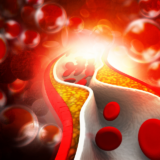Is Carb Addiction Possible?






What are carbohydrates?
Nutrients that are needed in bulk for survival of the human body are called macro nutrients. Carbohydrate is one such main macro nutrient human body needs.
In fact, of all the macro nutrients, carbohydrates may be considered as the most important source of energy for human body cells. Still, serving as a good source of energy isn’t their only function. When we think of carbohydrates, often the first types of foods that come to mind are refined carbohydrates like polished rice, food made of wheat flour devoid of natural fiber, e.g., biscuits, cakes, cookies, pastries, white bread, pasta, noodles etc.
It is important to note, many healthy, naturally occurring, relatively unprocessed or unprocessed foods are also carbohydrates such as fruits, vegetables, whole-grain pulses, whole-grain cereals etc.
Carbohydrates and their role in optimal health have dominated discussions of the human diet for almost the 2nd half of the 20th century and the entire 21st century so far. Mainstream diet fads and recommendations have evolved over this period.
Scientists, food technologists, researchers continue to discover new information about how human body digests and responds to carbohydrates.
This write-up looks at contemporary scientific understanding on whether carbohydrates are addictive, and what that means for their role in the human diet.
Craving for Carbohydrates
People wonder sometimes, why it is difficult to resist eating junk food or ‘highly processed away-from-nature food-like substances’. Is it related to willpower, behavioral or psychological traits, or how human mind gets ‘pushed’ to decide in favor of eating such foods? Things common to such foods are, of course, salt and fat (especially trans-fats); however, such foods are heavily loaded with refined carbohydrates or refines sugars. Do these refined carbohydrates be as addictive as other habit-forming substances? Or is the concern totally unfounded?
New research suggests strong evidence that high-carbohydrate meals stimulate regions of the brain that are associated with cravings and rewards. To understand this, it is important to understand the concept of glycemic index of foods.
What is glycemic index of foods?
The glycemic index is a scale that ranks the number of carbohydrates in foods from zero to 100, indicating how quickly a food causes a person’s blood sugar to rise. That means not all carbohydrate foods are equal. Carbohydrates with a low GI value (55 or less) are more slowly digested, absorbed and metabolized and cause a lower and slower rise in blood glucose and, therefore usually, insulin levels.
The classifications for glycemic index include:
-
Individual food portion:
Low: 55 or less
Mid: 56 – 69
High: 70+
And
-
For the whole day the classifications are:
Low: 45 or less
Mid: 46-59
High: 60+
(The figure of 45 comes from studies that suggest this average GI of 45 is associated with significant health benefits in people with existing diabetes and in reducing the risk of chronic diseases like heart disease and diabetes)
Now, coming back to the discussion on cravings for carbohydrates, the new research referred above, found that men with obesity or overweight displayed higher brain activity and greater reported hunger after eating a meal with high glycemic index compared with a meal with low glycemic index.
Carbohydrate addiction – what we should know
Some studies have gone so far as to suggest that refined carbohydrates in the form of fructose have addictive properties that closely resemble those of alcohol. Fructose is a simple sugar found in fruits, vegetables, and honey. Researchers behind these studies found that, like alcohol, fructose promotes insulin resistance, abnormal fat levels in your blood, and liver inflammation.
This pathway triggers appetite and influences food intake through a system of pleasure and reward rather than being based on true physical hunger or actual energy needs.
Insulin resistance and the host of symptoms it brings in, that are collectively called syndrome-X, increase risk of chronic lifestyle disorders like type-2 diabetes, cardiovascular disorders, thyroid malfunction, fatty liver, hormonal imbalance, and poly-cystic ovary syndrome in women. The related inflammatory responses can play havoc with optimal health. Repeated stimulation pathway depicted above, may ‘confuse’ the body on how much fat it must keep, contributing to overweight and obesity.
Foods with high glycemic index that actively encourage surge in blood sugar levels and also initiate insulin surge, appear to affect dopamine levels. Dopamine is a neurotransmitter in the human brain that sends messages between cells and influences the way humans feel pleasure, reward, and even motivation. Granting periodic access to sugar and refined carbohydrates may produce behavior that closely mimics the dependency often seen with habit-forming substances. It is important to note, several studies are still in progress and gradually more clarity is expected to evolve with time.
Is there way to deal with cravings for refined carbohydrates?
Even though research shows that carbohydrates, especially refined carbohydrates, display some addictive properties, there are many techniques one can use to overcome cravings for carbohydrates and other junk foods.
One of the most powerful steps one can take to stop carbohydrates cravings is simply to plan for them ahead of time.
Having an action plan in mind for those moments when cravings hit may help one feel prepared and empowered to pass up carb-laden junk foods and make a healthier choice instead.
Here are a few suggestions:
- Start to fill the plate with protein: Begin planning for a meal with animal and vegetable sources of protein first. This may include eggs, meat, pulses like soybean, cottage cheese, paneer – these foods may assist in feeling fuller for a relatively long time.
- Exercise regularly: Higher physical activity levels might help suppress cravings by triggering the release of feel-good endorphins from the brain. Drink a lot of water: Frequent hydration may hold an important key here. Drinking water throughout the day may ward off cravings for carbohydrates.
- Include fiber-rich fruits and salads in daily diet: Fiber not only provides a feeling of fullness, it also reduces the overall glycemic index of a meal. Salads are a must as part of each meal in the day.
In Summary
Carbohydrates are essential for human survival. It is one of the most important macro nutrients human beings consume. Type of carbohydrates we consume matters a lot. Carbohydrates that have low glycemic index, for example, fiber-rich foods like fruits, vegetables, and whole grains, are relatively healthier compared to carbohydrates that have high glycemic index such as refined wheat flour, refined sugar etc. Though further studies are in progress, and it may be early to conclusively pronounce, yet current knowledge points towards refined carbohydrates might display addictive-like properties just like observed in habit-forming substances including alcohol. There is evidence such carbohydrates may regulate brain chemistry. It may be beneficial to optimal health to avoid addictive refined carbohydrates and highly processed junk foods like chips, pizza, cookies, candies and cakes and candies.














11 comments
ascehine
May 24, 2021 at 2:31 am
Hi Nice site
Jean Michelle
August 5, 2022 at 7:16 am
Good post. I learn something new and challenging on blogs I stumbleupon on a daily basis. Its always useful to read content from other writers and use a little something from their sites.
Jean Michelle
August 23, 2022 at 9:39 am
Good post. I learn something new and challenging on blogs I stumbleupon everyday. It will always be interesting to read articles from other authors and use a little something from their sites.
Victoria Agnel
August 27, 2022 at 4:29 am
I must thank you for the efforts youve put in writing this site. I really hope to check out the same high-grade content from you in the future as well. In fact, your creative writing abilities has inspired me to get my very own site now 😉
Agastha
September 17, 2022 at 11:37 am
I really like your writing style, great information, regards for posting :D. “Faith is a continuation of reason.” by William Adams.
Tanicia
May 14, 2023 at 2:40 am
Hello! This post couldn’t be written any better!
Reading this post reminds me of my old room mate!
He always kept chatting about this. I will forward this post to him.
Fairly certain he will have a good read. Many thanks for sharing!
Hurriya Siddiqui
June 28, 2023 at 5:25 pm
Your explanations are easy to follow, even for beginners.
blue
November 29, 2023 at 1:46 pm
hello!,I really like your writing so a lot!
Blaze
April 24, 2024 at 7:03 am
Your writing has a way of resonating with me on a deep level. I appreciate the honesty and authenticity you bring to every post. Thank you for sharing your journey with us.
loraine_quam
May 18, 2024 at 7:59 am
This article was incredibly insightful! I was captivated by the thoroughness of the information and the clear, engaging way it was delivered. The depth of research and expertise evident in this post is remarkable, significantly elevating the content’s quality. The insights in the opening and concluding sections were particularly compelling, sparking some ideas and questions I hope you will explore in future articles. If there are any additional resources for further exploration on this topic, I would love to delve into them. Thank you for sharing your expertise and enriching our understanding of this subject. I felt compelled to comment immediately after reading due to the exceptional quality of this piece. Keep up the fantastic work—I’ll definitely be returning for more updates. Your dedication to crafting such an excellent article is highly appreciated!
loraine_quam
May 18, 2024 at 9:32 pm
This article was incredibly insightful! I was captivated by the thoroughness of the information and the clear, engaging way it was delivered. The depth of research and expertise evident in this post is remarkable, significantly elevating the content’s quality. The insights in the opening and concluding sections were particularly compelling, sparking some ideas and questions I hope you will explore in future articles. If there are any additional resources for further exploration on this topic, I would love to delve into them. Thank you for sharing your expertise and enriching our understanding of this subject. I felt compelled to comment immediately after reading due to the exceptional quality of this piece. Keep up the fantastic work—I’ll definitely be returning for more updates. Your dedication to crafting such an excellent article is highly appreciated!